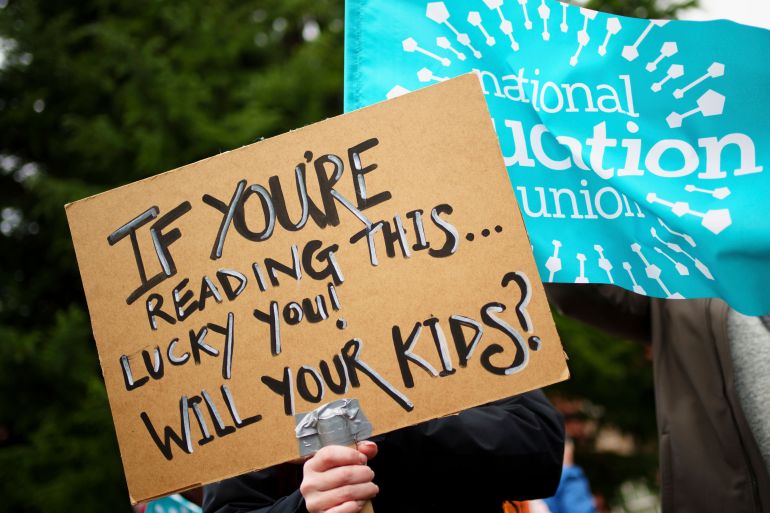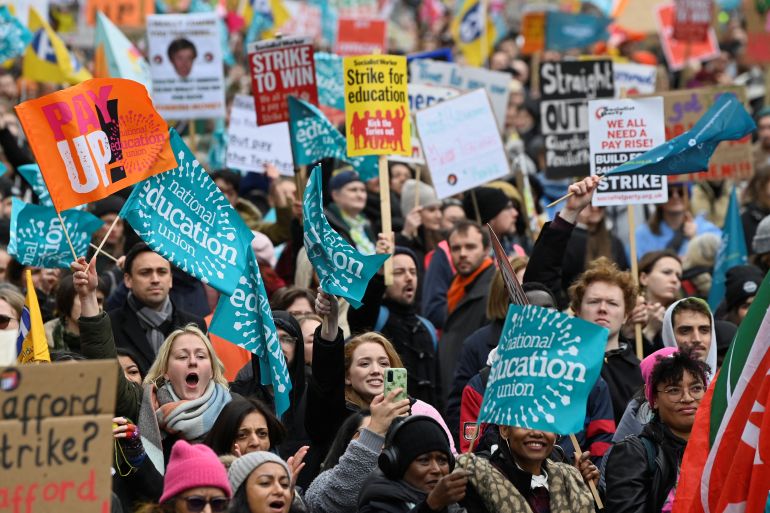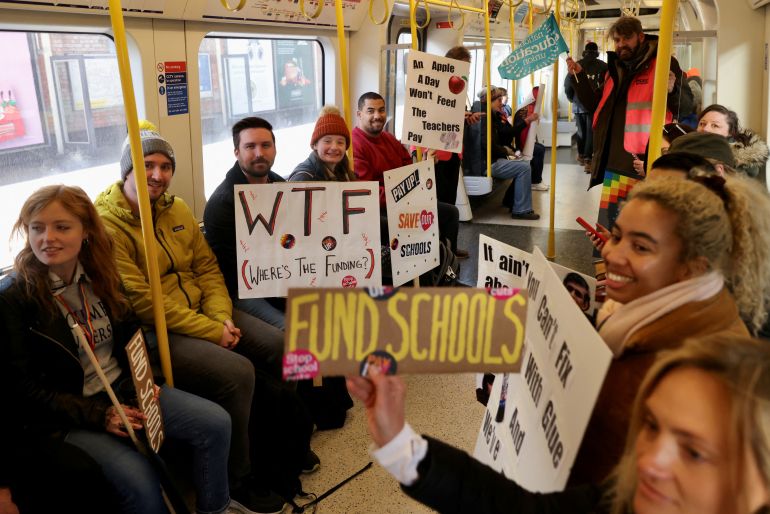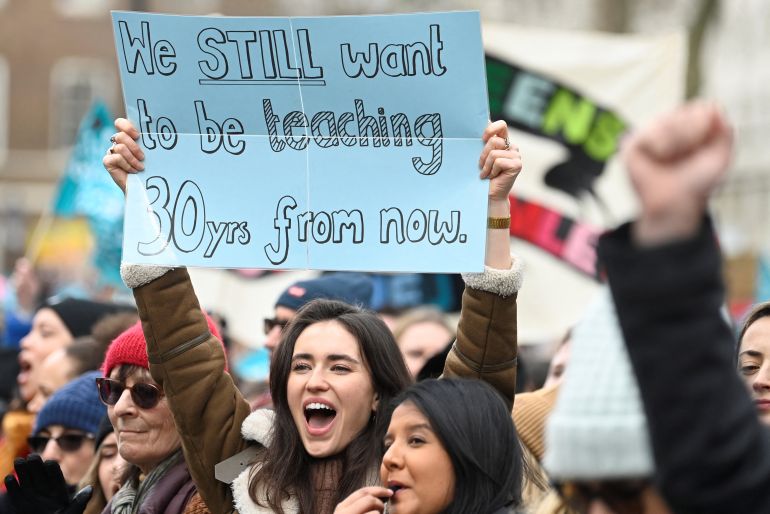Hundreds of thousands of teachers are among those who walked off to demand wages that keep pace with inflation.
Up to half a million British teachers, civil servants, train drivers, and university lecturers have walked out over pay and conditions in the largest coordinated strike action in a generation, as wages fail to keep pace with soaring inflation.
About 300,000 on strike on Wednesday are teachers, according to the Trades Union Congress (TUC).
Across schools in England and Wales, teachers formed picket lines as they called for higher salaries in demonstrations which have divided public opinion.
Some locals in cars beeped their horns and raised a fist in solidarity as they drove past, while others walking by, who disagreed with the industrial action, questioned teachers on their motives.
Home-schooling and home-working reminiscent of COVID lockdowns returned to many households, as school gates remained closed and most trains were halted.
According to a YouGov poll late last year, 59 percent were in favour of the education sector striking.
The National Education Union said some 23,000 schools will be affected on Wednesday, with an estimated 85 percent fully or partially closed.

Former Labour leader Jeremy Corbyn, who crossed the picket lines to join striking workers in London, called for a “fairer taxation system”.
“This country cannot afford the levels of inequality we have,” Corbyn told Al Jazeera.
“There are more billionaires in Britain than ever before, many people, billionaires and millionaires, made a lot of money during COVID-19 they haven’t been taxed for it,” he added.
Jack, a teacher who was on strike, told Al Jazeera that it was “almost impossible” to help every child that needs support under current conditions.
“Teachers are not just teachers. They are social workers, they are nurses, they are all sorts of different professions within the job itself – and on an emotional side, it’s not sustainable for teaching long term,” Jack said.

Others also on strike range from museum workers and London bus drivers to coastguards and border officials manning passport control booths at airports.
More action, including by nurses and ambulance workers, is planned for the coming days and weeks.
Union bosses say that despite some pay rises – such as a 5 percent offer the government proposed to teachers – wages in the public sector have failed to keep up with skyrocketing prices, effectively meaning workers have been taking a pay cut.
The TUC says the average public sector worker is 203 pounds ($250) a month worse off compared with 2010, once inflation has been taken into account.
Al Jazeera’s Neave Barker, reporting from Parliament, said teachers were demanding significant pay increases to beat the “soaring levels of inflation that currently stand at around 10.5 percent, the highest among the G7 group of advanced economies”.
“Many teachers are saying, ‘Look we cannot afford 2023 prices given that many of us still earning what we were earning a decade ago’,” he said.

On Monday, Prime Minister Rishi Sunak told public health workers he met on a visit: “I would love, nothing more would give me more pleasure than, to wave a magic wand and have all of you paid lots more.”
“An important part of us getting a grip on inflation and halving it is making sure the government’s responsible with its borrowing, because if that gets out of control that makes it worse and it’s about making pay settlements reasonable and fair.”
Gillian Keegan, education minister, said on Wednesday that the government’s response was unchanged and that higher wage increases would fuel inflation further.
Mary Bousted, head of the National Education Union, gave the government a deadline.

“We want this to be a one-day strike and what I would say to the government is that you have now got 27 days until the next strike in England, which is a regional strike in the northwest. That’s 27 days where you can sit down and really negotiate with us, we’re ready to do that,” Bousted told Sky News.
“We have to find a way to address the workforce crisis in our schools, we have to find a way of a long-term correction for teachers’ pay which has declined so drastically over the last 12 years, to a much worse extent than nearly any other profession.”



No comments:
Post a Comment
Note: only a member of this blog may post a comment.